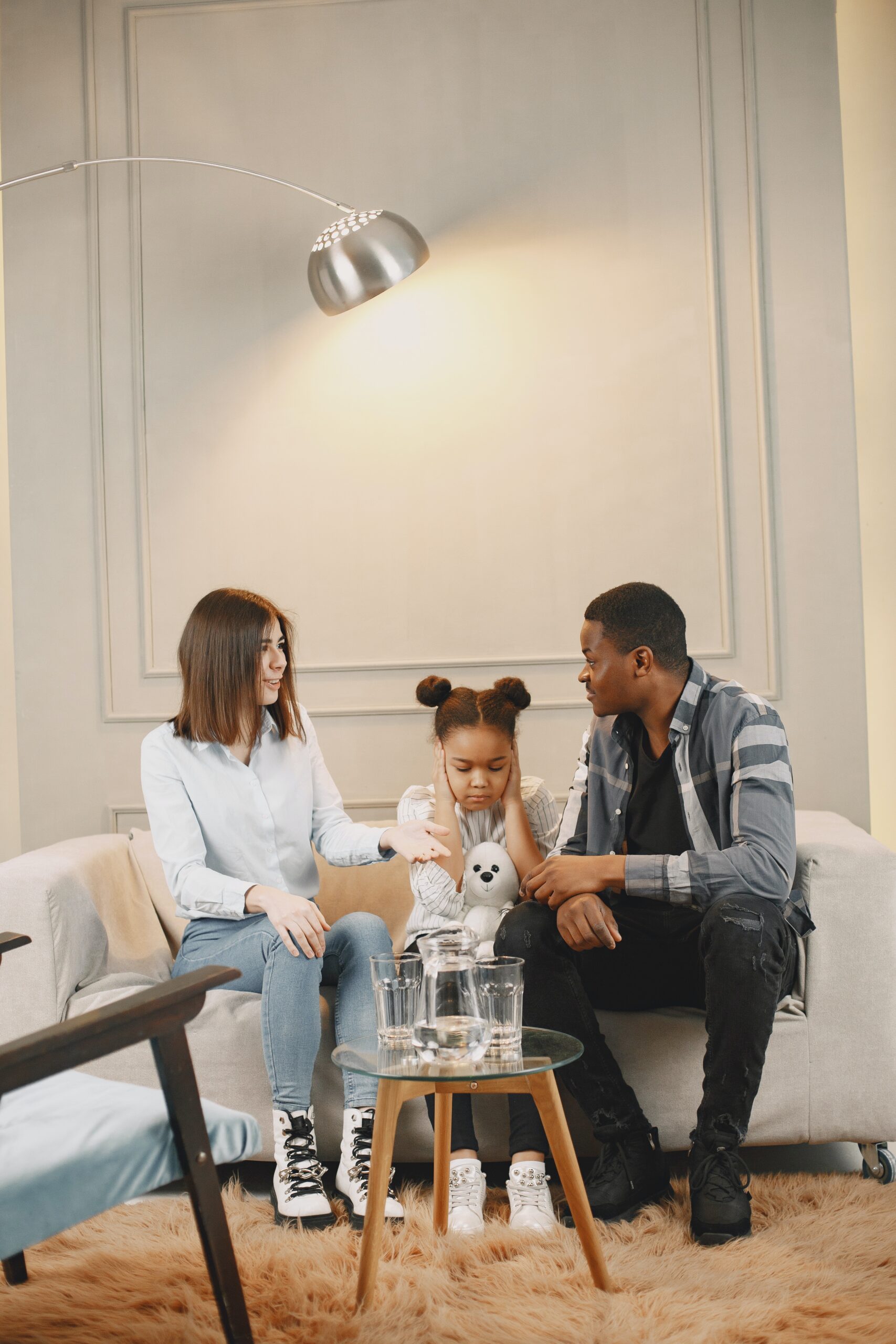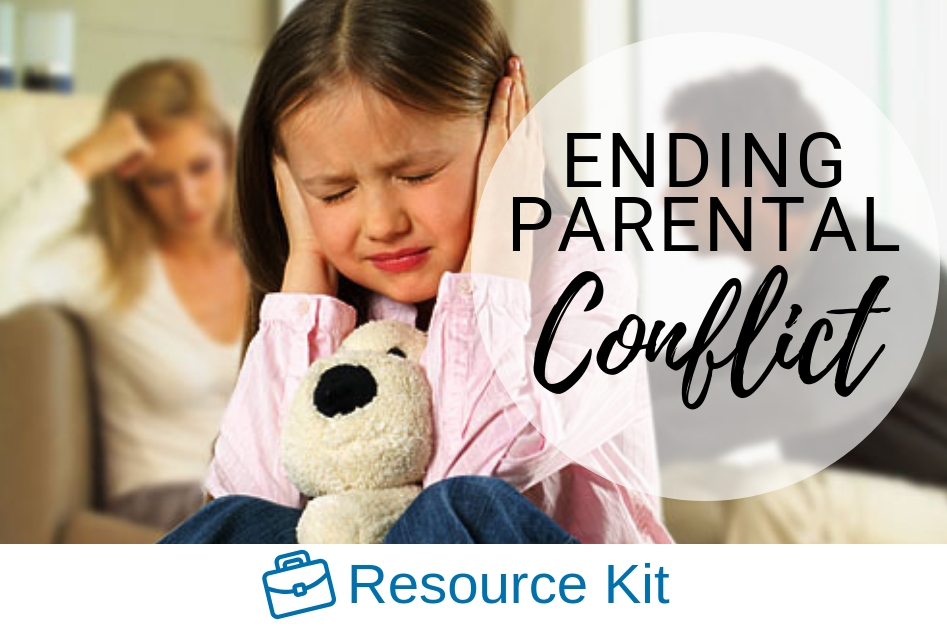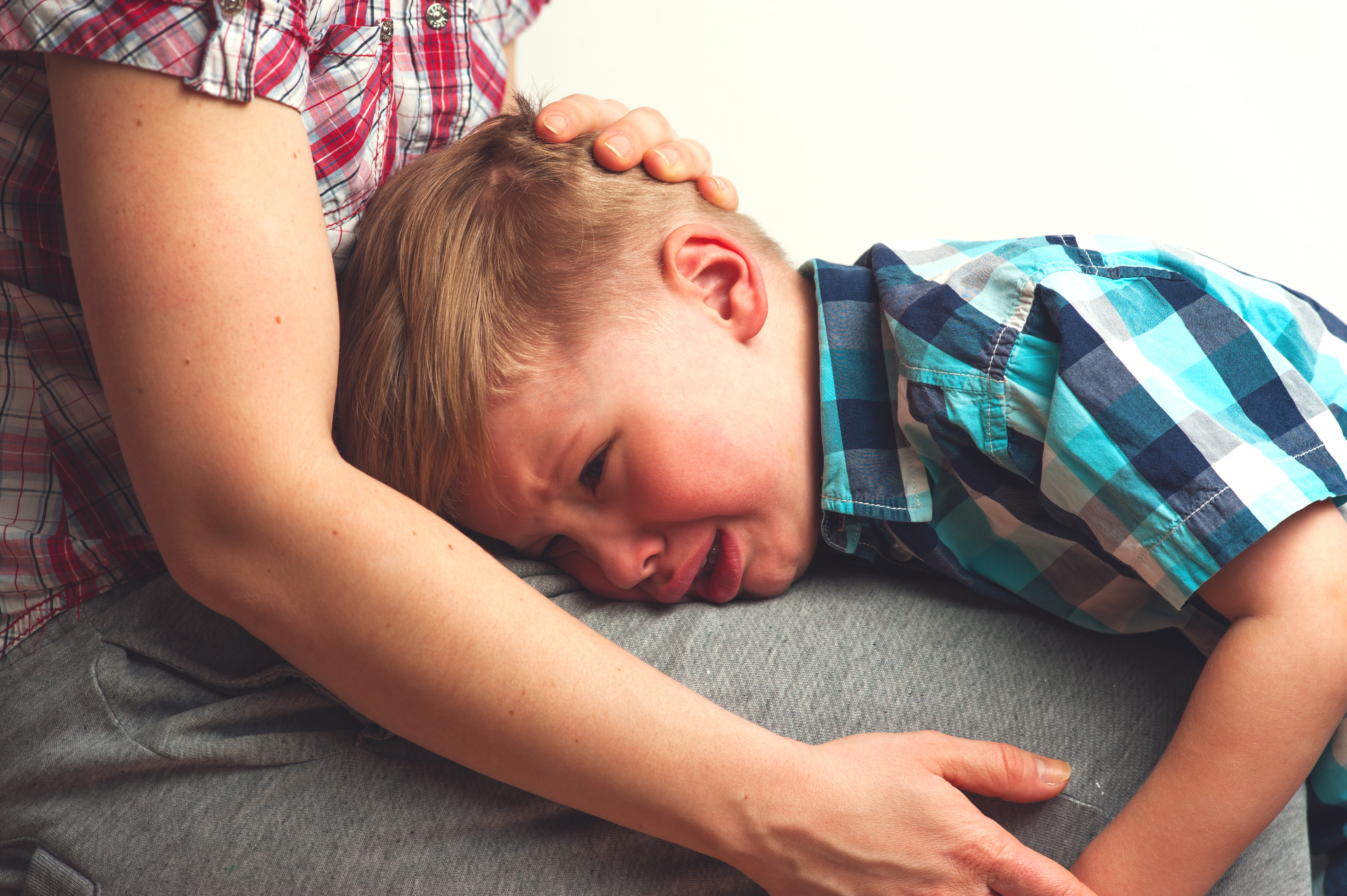
Parental conflict can be a huge source of stress for parents and children alike
All family members need enough harmony to feel loved and secure. Everyone wants and needs to feel emotionally safe and supported, to feel seen, heard and understood. Many couples struggle on, assuming things can’t get any better, feeling powerless. The more misunderstandings and resentments mount, the harder it becomes for parents to work well together. All couples have disagreements. When those differences can be worked through respectfully and both parties reach satisfying solutions and agreements, children tend to be less affected and can indeed learn healthy conflict resolution skills. Conflicts of wants and needs and values are normal in families and can’t be and shouldn’t be avoided.
However, when children are exposed to relationship conflict that is intense, frequent, without resolution and/or abusive it impacts them negatively in many ways. Living with conflict can compromise each parent’s connection with their child. It can result in many unhealthy behaviours in children stemming from increased stress and insecurity. Living with conflict can lead to sibling conflicts and hinder the child’s self-esteem and resilience.
Healthy communication skills need to be learned and practised
This is similar to learning to peacefully parent. In fact, many parents who have been through our Step by Step eCourse have reflected that their relationship with their partner improved dramatically as a result of bringing more of those skills into their partner relationship. Some of the skills that make a big difference are using I statements, active listening, reflecting back what you hear, learn to acknowledge each other’s perspective even when you disagree. To avoid becoming harsh or cold, parents need to learn to slow down and be mindful of the emotions being triggered inside them. I’m a great believer in having talks about how you talk. Talking about talking when you both have time and headspace to really work to create some healthy guidelines.
Suggested guidelines to create emotional safety
-
- It helps to begin tricky conversations by aiming to create common ground through empathising or affirming that these issues are difficult and stressful for you both.
- You help to diffuse power struggles when you can affirm that you both want what’s best for the child, by reassuring that you both have your child’s best interests at heart.
- Organising a specific time and space to talk and be heard tends to result in more constructive communication for both parties.
- The more charged the topic can be, the more important it is to create guidelines that maintain emotional safety and to them out together regularly.
- Set up safety guidelines both parties can express what they need to feel safe to express their thoughts and feelings. Then, work together to write out agreements both parties are willing to agree to.
- Weave into the agreement permission for either party to negotiate a pause when they start to feel overwhelmed or triggered. A word like “pause” or a hand gesture or both, for instance.
- When one partner wants to talk and the other can’t agree to it, talk about when you will talk.
- Include in the agreements that both parties avoid labelling and black-and-white statements that start with “you always” or “you never”, as these invariably lead to defensiveness.
- Avoid assuming the other’s intentions or emotions, but instead ask open questions like: “In these situations, what do you feel?”. Or “It seems that what I just said was upsetting. What are you feeling about what I just stated?”
- Aim to hear, understand, reflect and acknowledge each other’s perspectives even when you don’t agree. This meets the need to feel heard and increases cooperation.
- Both partners commit to genuinely reflecting on conflicts and emotional conversations. Come back later to share insights with the intention of navigating conflicts with more compassion and more constructively in the future.
Arguments create a high risk of damaging the warm connection
It’s important that each party tune in to and express their raw feelings with I Statements and avoid blaming or attacking language. When people speak from their very raw feelings, there’s a risk of expressing some big character judgments (like “you only care about yourself”). Anger and hurt feelings need to be felt and expressed within the safe holding of a mature conversation where both are willing to hear and acknowledge each other.
This is where your guidelines are essential to bring forward the most conscious mature version of yourself. Some couples can bring attacks into an argument and somehow rebound and preserve the connection. Yet the vast majority of couples won’t be able to do the emotional gymnastics that this involves. Arguments that include character evaluations and harsh judgments are more commonly remembered and they can really damage the connection and trust.

In this Parental Conflict resource kit (available to those with The Peaceful Parent Suite membership), Genevieve responds to a parent’s question relating to when she gets into an argument with her husband as a result of intervening when her husband gets into conflict with their child.
Anger tends to give people an over-inflated sense of being entitled to express that which they believe to be the truth
When we just blurt out our grievances, we usually make our partner defensive and feel entitled to do the same. Although, this is very understandable when we feel upset. When in the stress response, the brain’s job is to scan for threats. So our thinking becomes very black-and-white, lacking the complexity and ability to be compassionate, considerate or sensitive.
We learned the first rules about relationships from how our family of origin dealt with conflicts. Without huge scrutiny of how we operate when conflict arises, we are at the risk of re-enacting similar ways of communicating. Often they may be unhealthy and dysfunctional.
This is why it’s very important that we all maintain impulse control when strong emotions rise up. This might read or feel like emotional repression but it’s more about healthy and responsible management of our emotions.
We all do need to really listen to and have safe places where we can express those raw emotions
Often valuable insights get lost because of our inability to express them in a way that our partner can hear and understand. When feeling attacked or misunderstood, very few people can operate from the heart and work to truly understand the other with care and compassion. Most parents benefit from finding other safe outlets for their frustrations like in an agreed active listening partnership or through counselling or co-counselling.
Organising an active listening partnership with another adult – also equally relevant to organising shared listening times with your partner.
Most adults grew up in families where they rarely if ever gained the emotional support and empathy that they needed
If, when young, a parent wasn’t listened to sensitively, they may not have learned how to tune in and listen to their feelings. It’s this inner reflective work of tuning in to, identifying and expressing feelings that help us work through our anger, frustrations, rage and resentments. When painful emotions are not sensitively tuned in to, some of the very important needs driving those feelings may not have been met. So a pattern of consistently invalidating one’s feelings can develop.
In emotionally dysfunctional families, family members tend to either repress the most painful emotions or express them destructively and aggressively
Both repression and verbal aggression (including harsh criticisms) compromise the bonds, trust, open lines of communication and ultimately the love in close relationships. As adults parenting our children, we have a huge responsibility to learn to communicate differently. We have a huge responsibility to our children and their children. That is, to break the cycles of emotional repression and the patterns of communication that lack empathy and sensitivity and lost trust.
Being skilled to resolve issues avoids communication breakdowns and resentments
It’s very hard to be diplomatic, level, encouraging, generous, reassuring and affectionate with our partner when we’re managing stress. And when we disagree with how they are parenting. This becomes especially true if we’re concerned about the impact on our child. Being level and kind becomes more difficult again when holding a big backlog of unresolved and unexpressed thoughts and feelings. To avoid resentment building and communication breaking down couples need to be able to talk and work through the issues.
One of the videos in our Ending Parental Conflicts Resource Kit (available to Village Members) covers the topic of how a parent can peacefully intervene when they become concerned or upset about how their partner is communicating with their child.
When co-parents have built up hard feelings and resentments, it becomes difficult to communicate
Especially on tricky subjects in a way that’s emotionally safe. Yet it’s only through calmer and emotionally safe and constructive communication that either party will get to the point of having their needs met. Both partners need to see, hear, and understand each other to have their good intentions acknowledged. They also need to feel cared for and supported around the issues that are the toughest.
Common ground creates a space for each party to meet in the middle
There are so many issues to talk through when parents are not on the same page. As well as talking through particular issues (and that’s very important) they also need to carve out times to talk about patterns of communication. Parents need to aim to create more common ground and aim to really hear and understand each other’s perspectives. Then, work together to make agreements. It’s particularly good if you could both agree on what the best approach would be in these kinds of situations. It’s good when the parent in a calmer state can intervene in a way that brings relief to the parent who is near the end of their patience.
When one person becomes defensive, they may find it difficult to be aware that their partner feels attacked
For most couples I talk to, this process doesn’t tend to be very smooth. Indeed it leads to lots of defensiveness. Denying that he/she said what they said is often a defensive tactic used to attempt to avoid taking responsibility. So for the parent who’s calmer to come in and intervene in a way that feels supportive and helpful, this usually needs to be agreed upon previously. The agreement helps the parent intervening to feel less anxious about the reaction. Hence more able to stay calm and be empathic and supportive. And the prior agreement helps the parent losing their patience in the midst of a power struggle with their child to be better able to perceive the intervention as support. Rather than feeling so threatened/criticised/defensive.
Unfortunately, most people didn’t experience a lot of truly peaceful loving support from another family member as a child when they got into conflict with a parent or sibling. Most of us learned that these were highly risky times. We learned to expect criticism, anger or rejection at these times and these patterns are deeply hardwired.
Genevieve Simperingham is a Psychosynthesis Counsellor, a Parenting Instructor and coach, public speaker, human rights advocate, writer and the founder of The Peaceful Parent Institute. Check out her articles, Peaceful Parenting eCourses, forums and one-year Peaceful Parenting Instructor Training through this website or join over 90,000 followers on her Facebook page The Way of the Peaceful Parent.









[…] Variety. Security. Fun. Friends. Opportunities to meet challenges & practice skills. Overall happy family. […]
[…] Ending Parental Conflict article […]
[…] Co-parenting can be tough! For parents who regularly get into a disagreement about how to deal with certain behaviours/patterns, this can lead to disconnection and conflict. […]
[…] irritation that they or their parents may struggle to identify. Sometimes children are affected by parental conflict, past traumas, and big life changes. Trauma in utero or during birth can have a much bigger impact […]